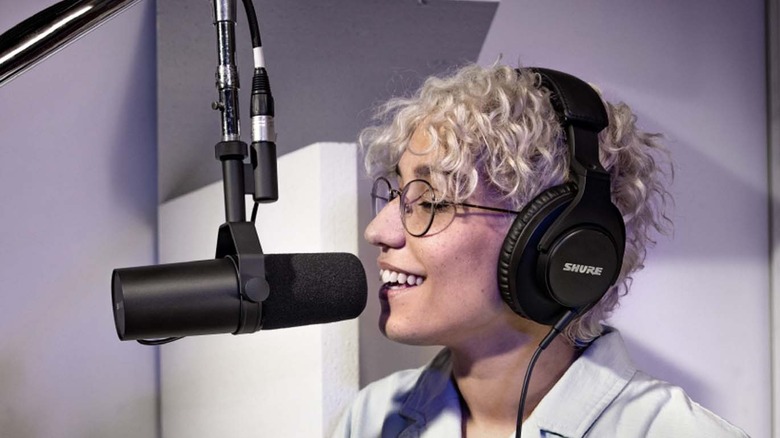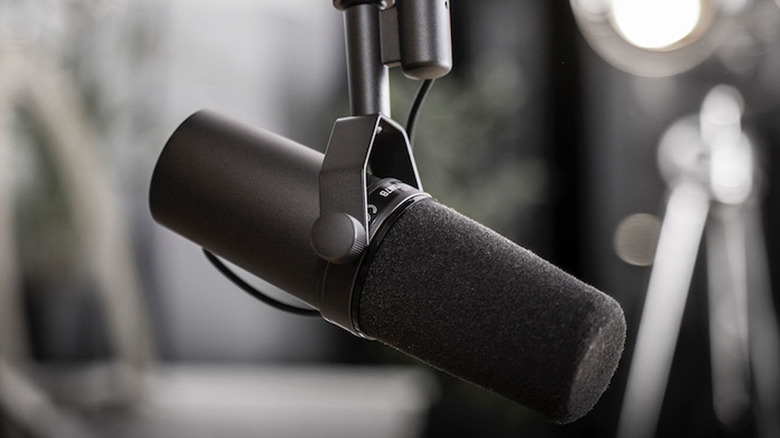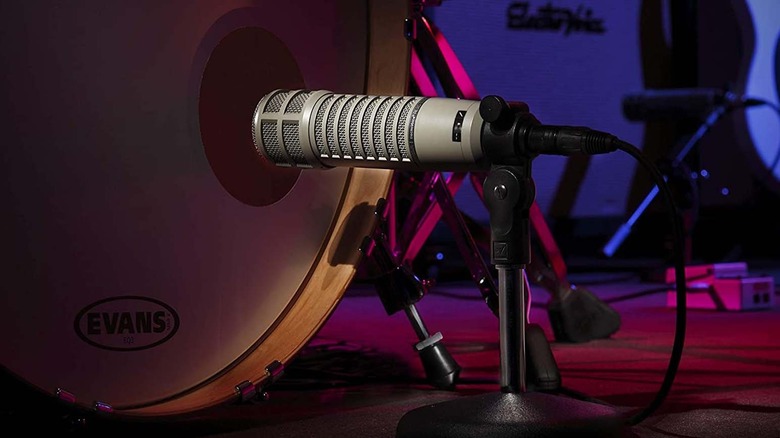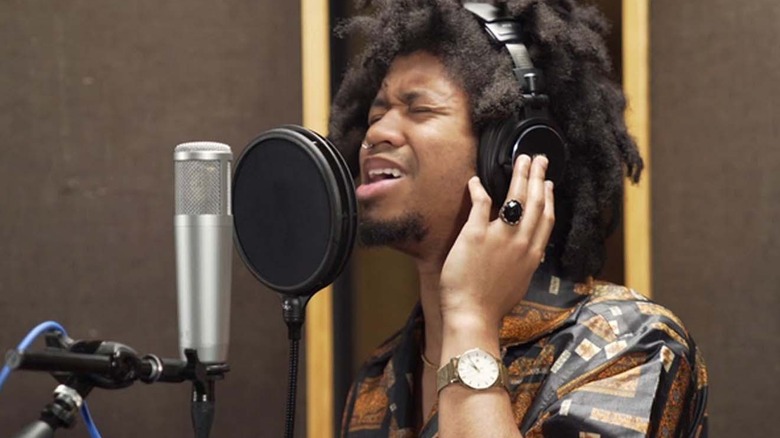The Best Microphones For Podcasting In 2023: These 3 Mics Are Worth It
We may receive a commission on purchases made from links.
With podcasting becoming bigger and bigger by the day, you might be looking to jump in and grab a piece of the pie for yourself. While you can just get started on your phone using apps like Spotify's podcast creation tools, you'll want to upgrade to a dedicated microphone at some point. And thankfully, there are some affordable options out there that won't break the bank. Something like a Blue Yeti would work just fine for many people, but there are certainly better options out there.
Mic quality is arguably the most important part of making a podcast, so you don't want to go for a budget option if you're really trying to turn this into a career. It's a perfectly fine path to take if you're podcasting it as a hobby, but professionals will find themselves upgrading their mic quickly, and you'll want to avoid sinking $100 into a mic that's now going to sit in a closet unused in a matter of months.
Shure SM7B
The Shure SM7B is a very good option for podcasters looking to take their craft a little more seriously, but it's a bit of a pricy one as it comes in between $300–$400 on any given day. Despite that, it's a very good microphone that will more than meet your needs. It is a dynamic mic, which means it will do a better job at eliminating background noise — fish tanks, birds chirping, or even you adjusting in your seat — than a condenser does. You'll want to tinker with settings in your broadcasting software with things like adding a noise gate. Once you get all of that sorted out, it's hard to find a better mic than this on the market.
If you're looking to save a little bit of cash, you can grab the Shure MV7 as an alternative. It functions largely the same as the SM7B, and it boasts the ability to be plugged in via a USB port, so you won't need the phantom power that an XLR mic needs. That does make it more flexible, but you will notice a dip in sound quality as a result. The draw is the fact it retails for around $250, so you're saving a good chunk of money by going this route.
Electro-Voice RE20
The Electro-Voice RE20 is easily one of the best mics on the market. This one will run you a bit more than the Shure SM7B, coming in around the $450 price range, but if you can spring a bit in your budget you won't regret it. Although this is a dynamic mic, it features condenser-like sounds, meaning your voice will come through clear, and you'll also have background noise largely eliminated. It won't be exactly the same as getting a condenser mic, but it's closer than other dynamic mics get. You'll still want to fool around with settings in your podcasting software as you would with any other mic.
Like the SM7B before it, the Electro-Voice RE20 also has a cheaper version that you can opt for if you're not willing to go this high for a podcasting mic. The Electro-Voice R320 will slash the price down to around $300. Unlike the Shure MV7, the R320 does not have a USB plug-in, so you'll still need to get a phantom power connection, ultimately saving a little less money.
PreSonus PX-1
The PreSonus PX-1 comes in cheaper than the other two options, but it's still a formidable mic that can keep the budget lower but the sound quality up. Unlike the rest of this list, the PX-1 is a condenser mic. That means you'll have cleaner-sounding vocals, but the trade-off is condensers tend to be noisier than their dynamic counterparts.
Condenser mics are typically recommended for use in places where there isn't a lot of outside noise — a recording studio, for instance. If you're making a podcast from your living room, then this likely isn't the best mic for you. You might be able to eliminate much of the background noise through noise gates, but it could be more trouble than it's worth.
If you have a soundproofed area to record from, then the PX-1 will be an excellent option. With this mic coming in at $130, it can be a real game-changer that saves you from blowing your budget. Perhaps you could even invest in some soundproofing for your recording room with the money you save by snagging the PX-1.



